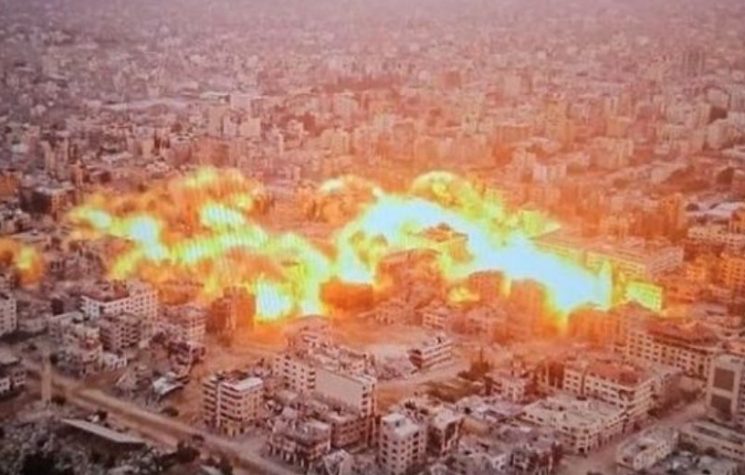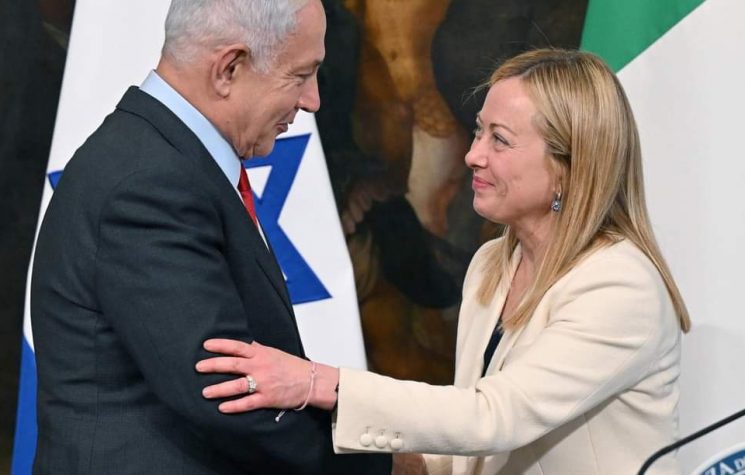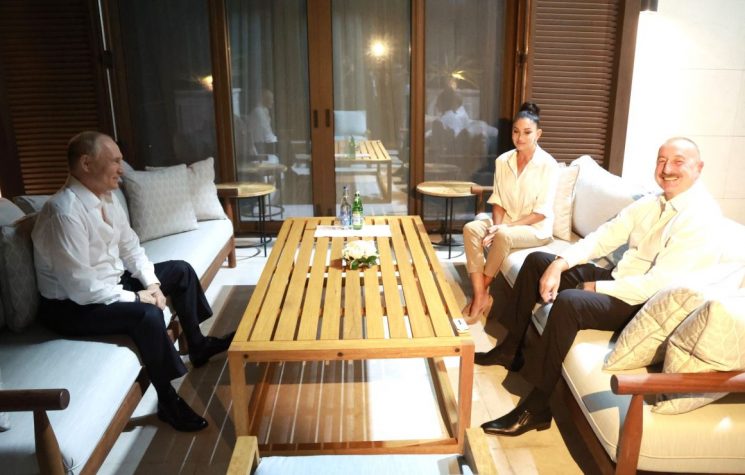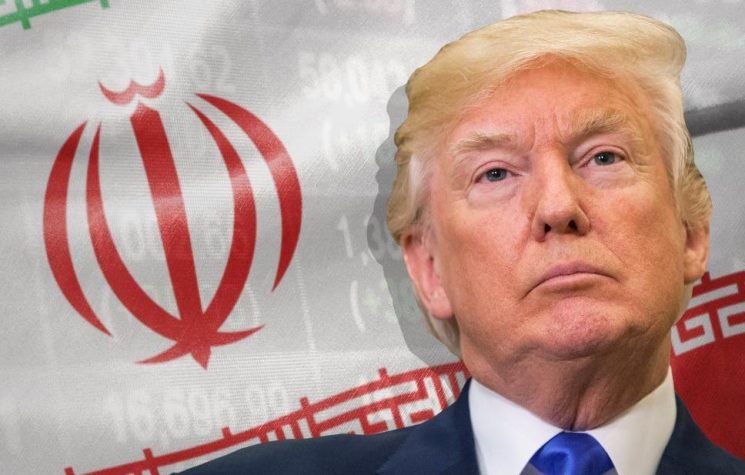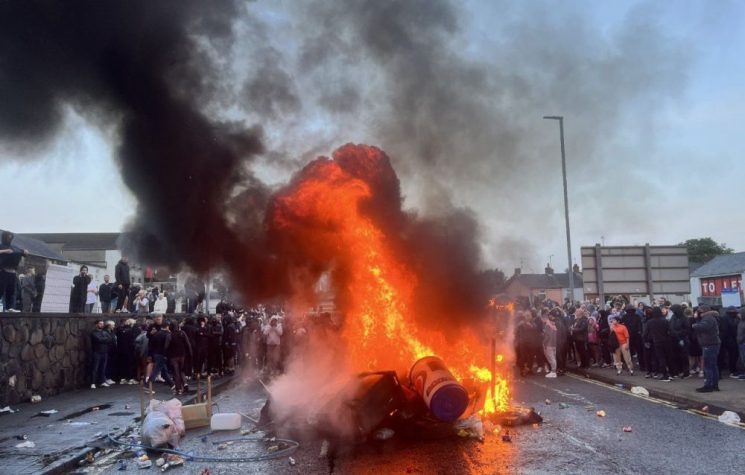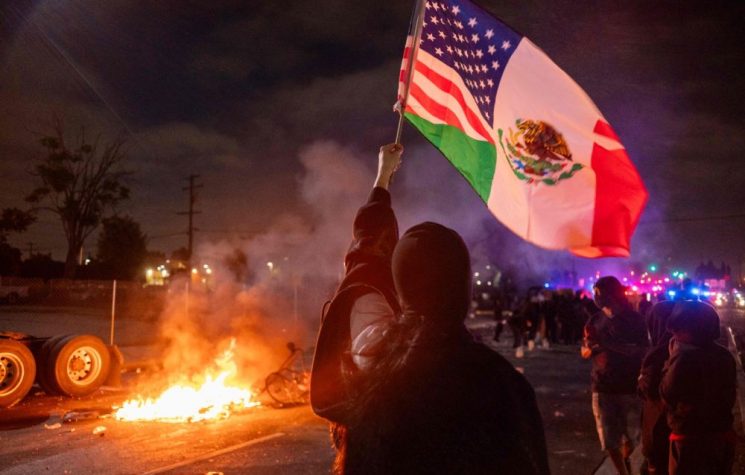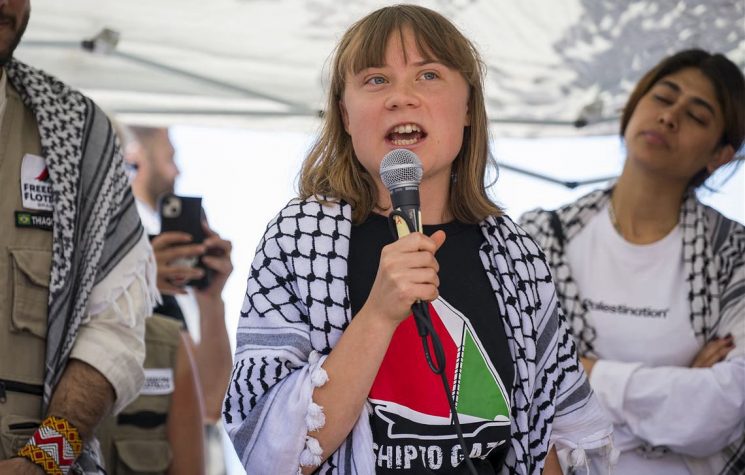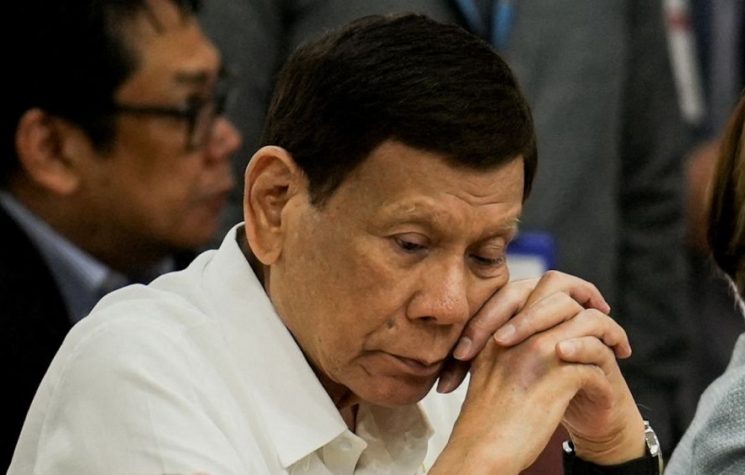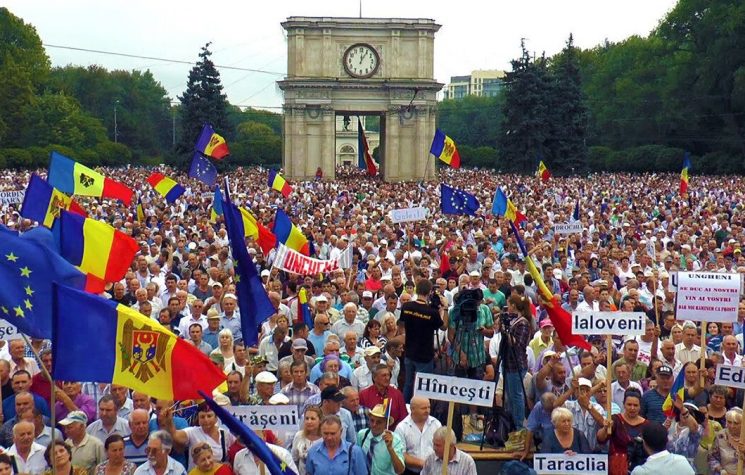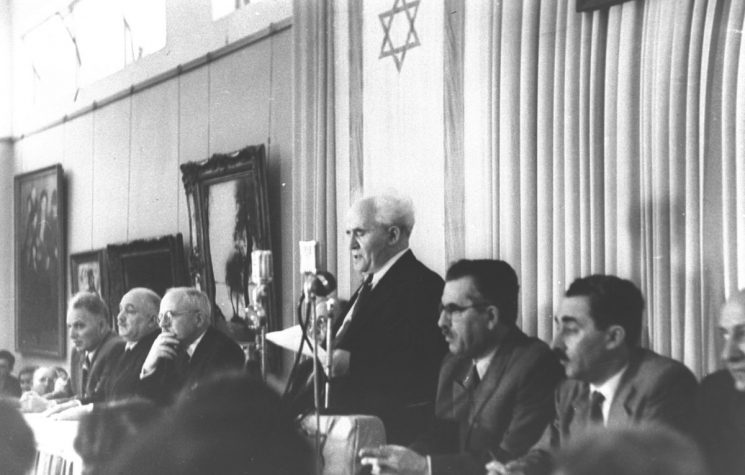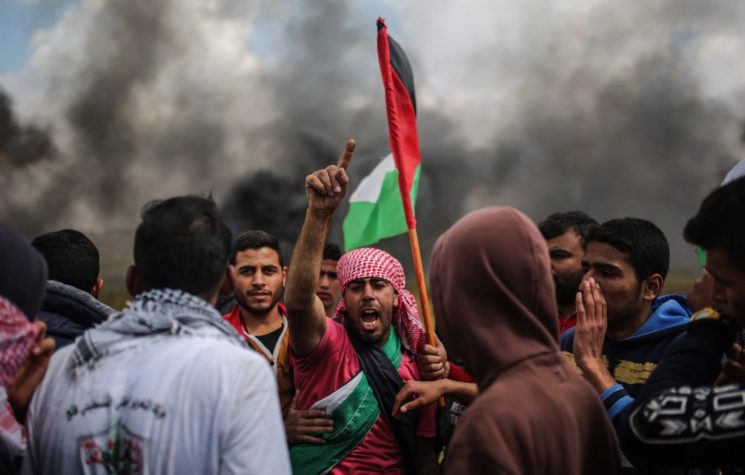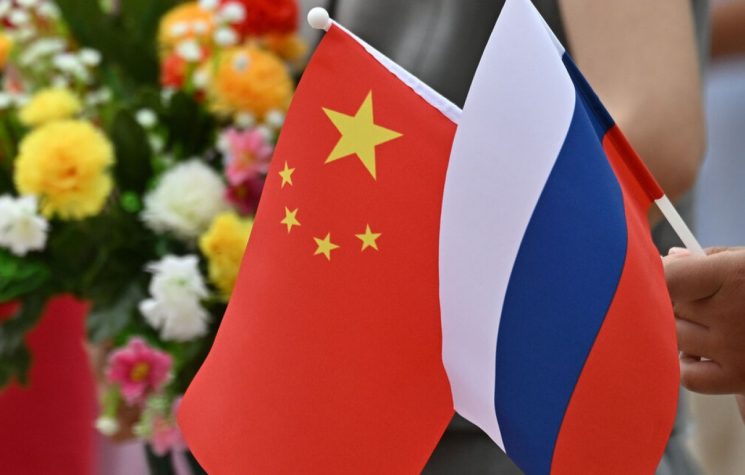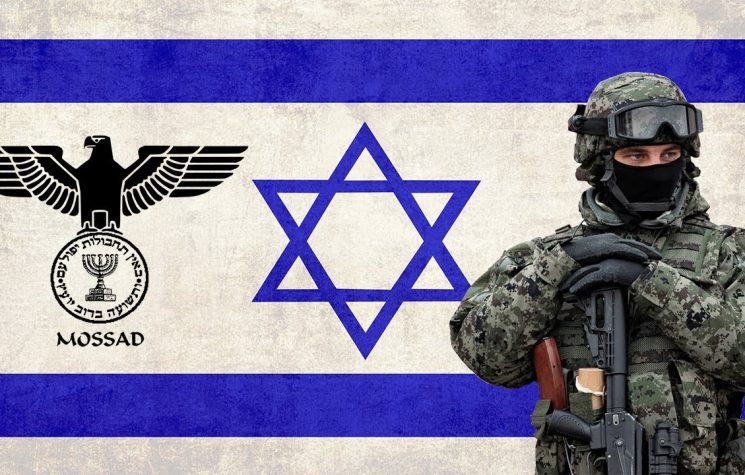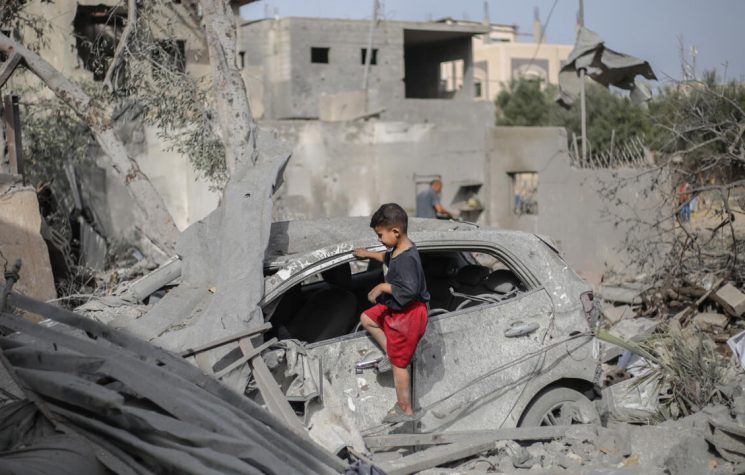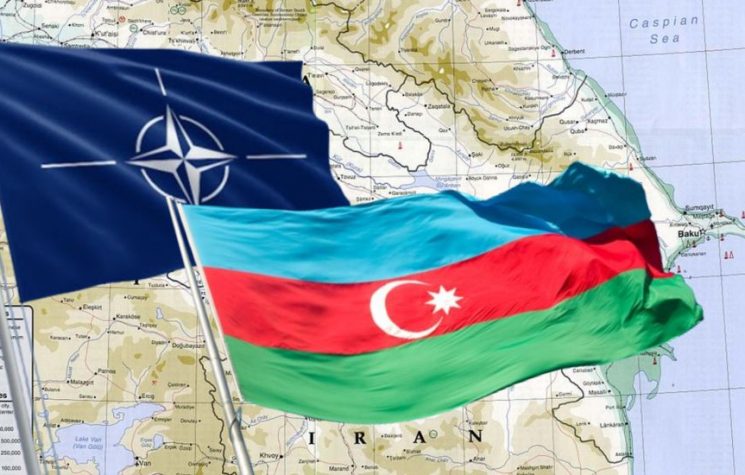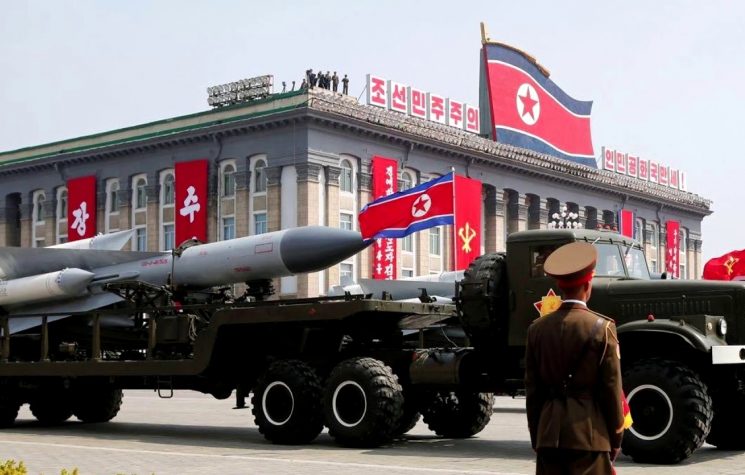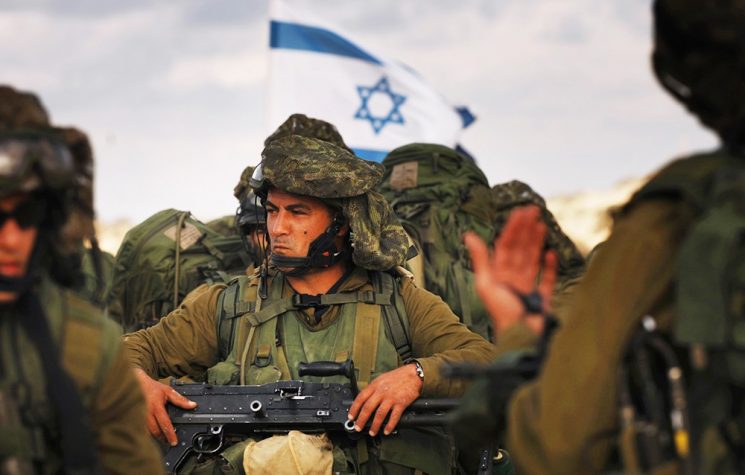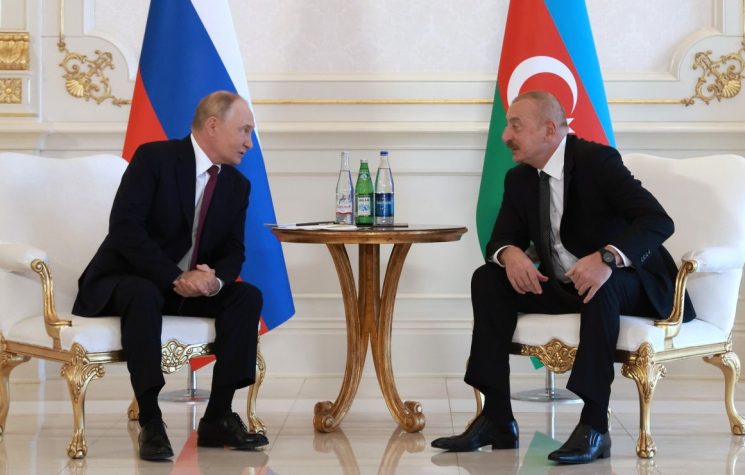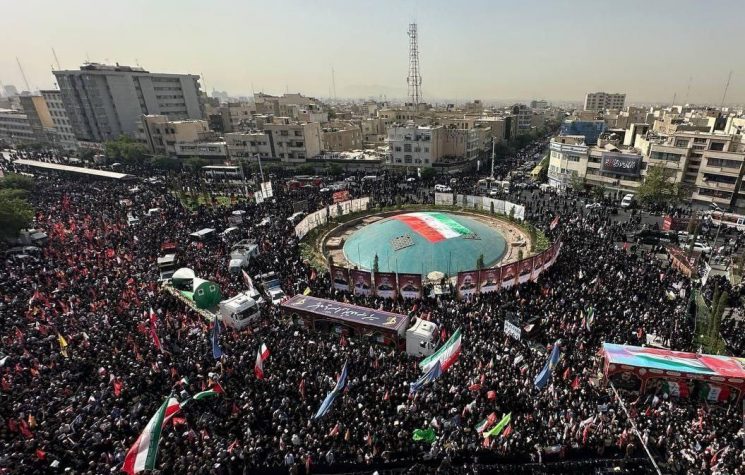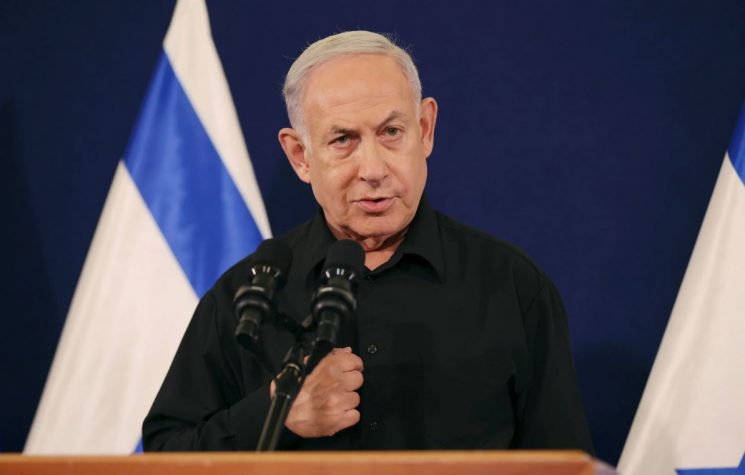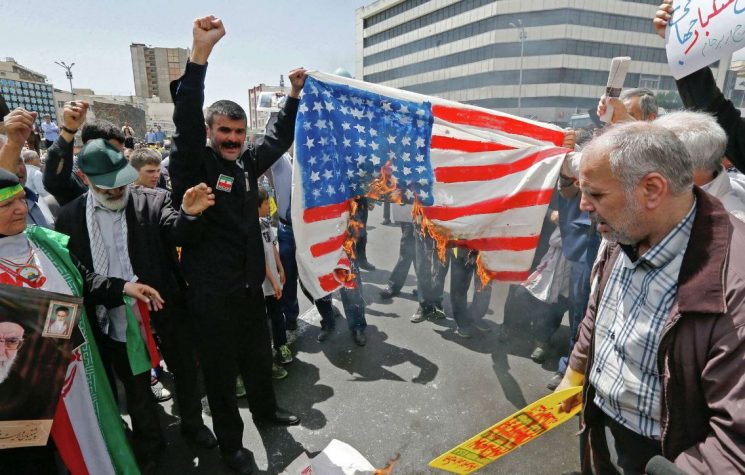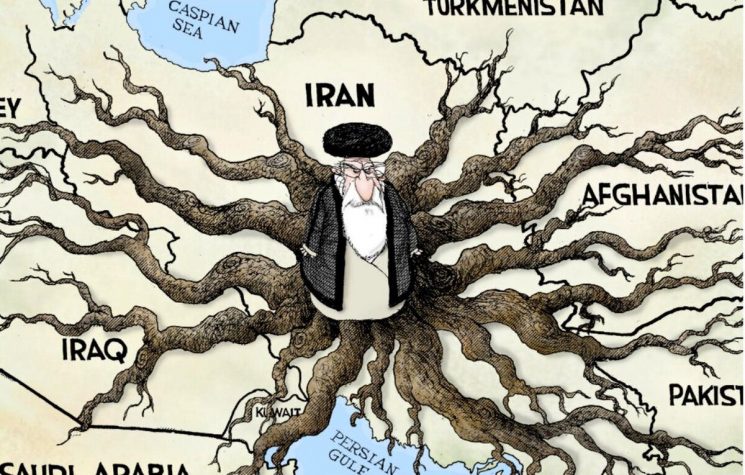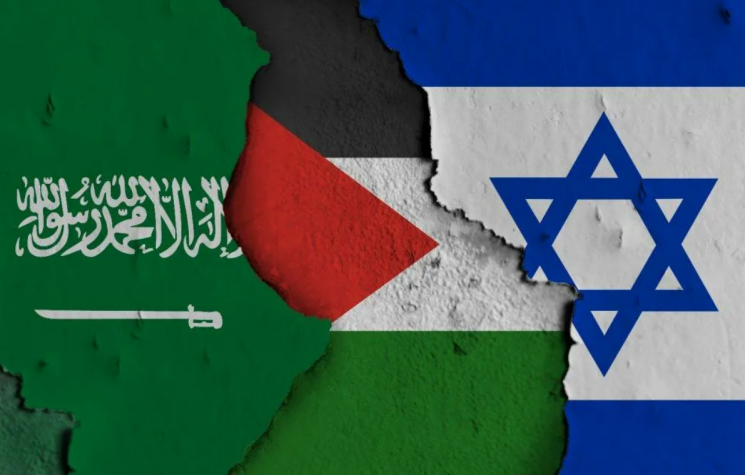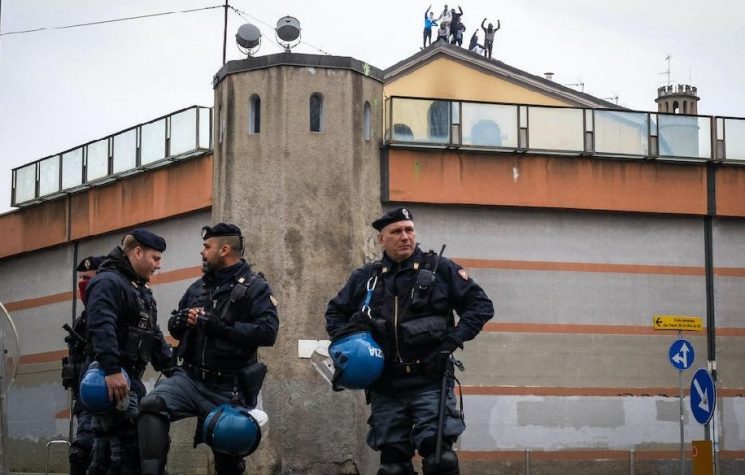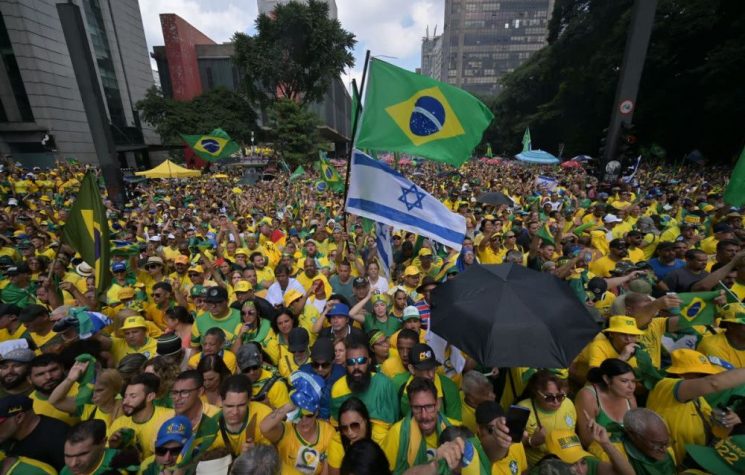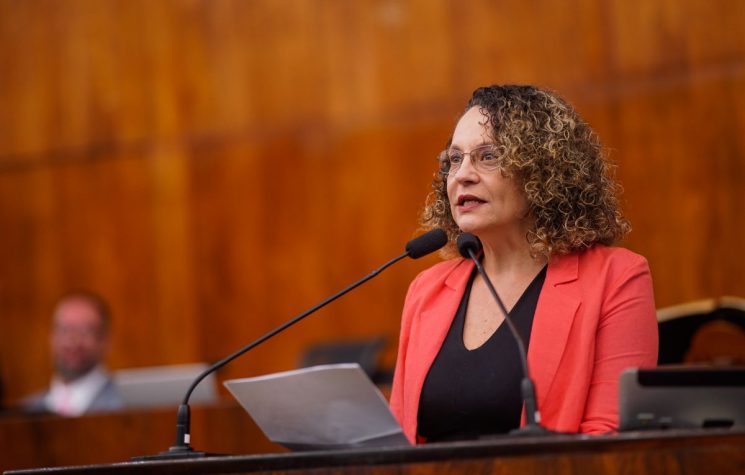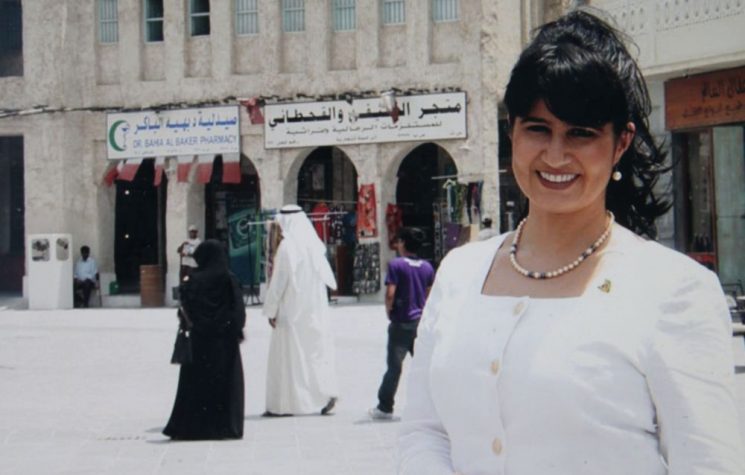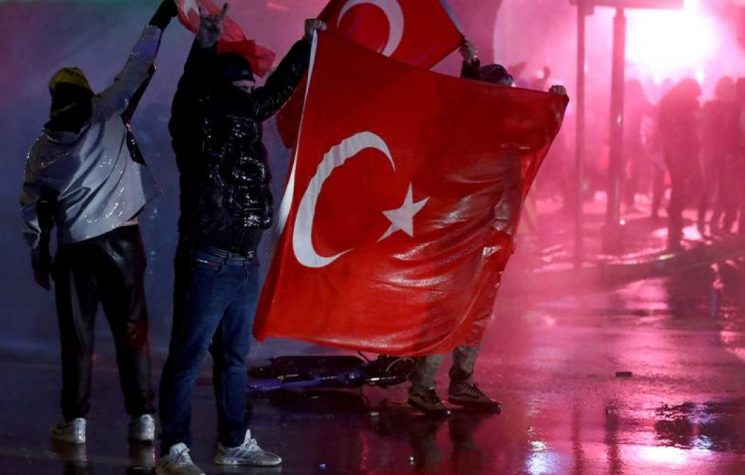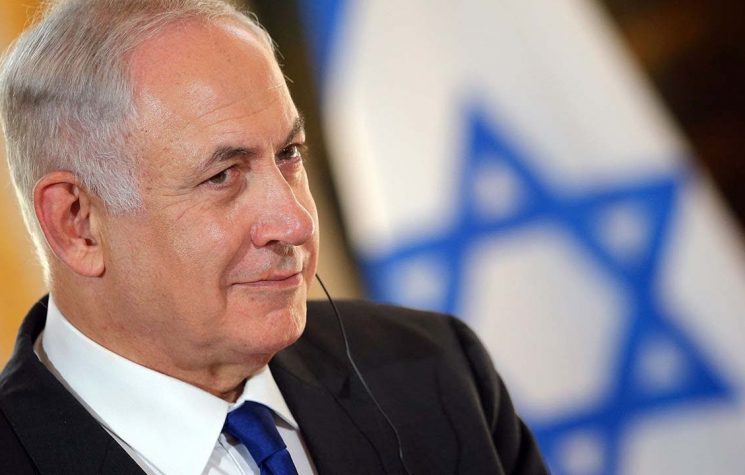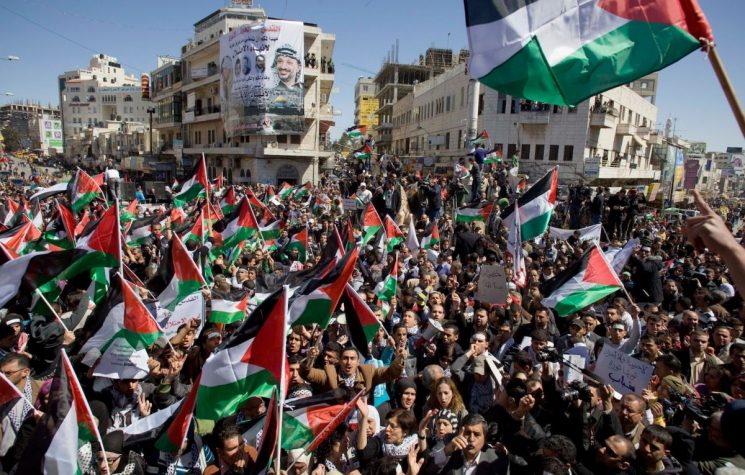Spring is the season of flowering, including for the Arab and Islamic people, who are increasingly united in their revolutionary struggle for national liberation.
❗️Join us on Telegram![]() , Twitter
, Twitter![]() , and VK
, and VK![]() .
.
Contact us: info@strategic-culture.su
The Arab Center for Research and Policy Studies interviewed 8,000 people between December 12, 2023 and January 5, 2024 in 16 Arab countries (Mauritania, Morocco, Algeria, Tunisia, Libya, Egypt, Sudan, Yemen, Oman, Qatar, Kuwait , Saudi Arabia, Iraq, Jordan, Lebanon, as well as the West Bank) and revealed in early January that 89% consider the October 7 attacks legitimate and only 5% consider them illegitimate.
- Furthermore, 69% express support for Hamas, 94% consider the U.S. position on the conflict to be negative and 79%, 78% and 75% consider the positions of France, the United Kingdom and Germany to be negative, respectively. Additionally, 76% said their opinion of the U.S. after the genocide in Gaza has become more negative and 81% do not think the U.S. truly supports the establishment of a Palestinian state;
- 51% think the U.S. is the main threat to their security, while 26% think it is Israel;
- 92% think that the Palestinian issue is a problem for all Arabs, not just the Palestinians. This is the highest rate since opinion polls began in 2011. At the end of 2022, the percentage was 76%. In Morocco, the index increased from 59% in 2022 to 95% now, in Egypt from 75% to 94%, in Sudan from 68% to 91% and in Saudi Arabia from 69% to 95%;
- 89% of Arabs reject the recognition of Israel as a State, while in 2022 there were 84%, and only 4% support this recognition. In Saudi Arabia, this index increased from 38% in 2022 to 68% now, in Morocco from 67% to 78% and in Sudan from 72% to 81%.
From these data, it can be safely guaranteed that: 1) there is immense support among Arabs for the armed struggle against Israel; 2) they consider imperialist powers as enemies and 3) they believe in a unified struggle against imperialism and Zionism.
Now let’s look a little closer at the objective and subjective situation in some key countries.
Erdogan’s ambivalence
Turkey is not an Arab country, which is why it does not appear in the poll above. But a survey carried out in October, that is, when the “terrorist barbarism” of Hamas was still more in evidence than the real terrorist barbarism, that of Israel, showed that just over 11% of Turks supported Hamas. Although this seems little for a Muslim country, it is necessary to remember that the new genocide had barely begun and that Turkey has a long history of alignment with the West (including being a member of NATO) and with Israel (it was the first Muslim country to recognize Israel as a State, one year after its creation, in 1949). Even so, this rate is almost four times higher than that of Turks who support Israel. Since then, there have been huge anti-Israeli and anti-American demonstrations in front of American and NATO military installations.
Researcher Asli Aydintasbas, in an interview with the Center for Middle East Policy’s Israel-Gaza, says that the Turkish people have “full sympathy” with the Palestinians and cites a survey by the Metropoll institute, which reports that two-thirds of Turks do not consider Hamas as a terrorist organization. According to him, no one criticizes Hamas for the October 7th attacks anymore and ordinary citizens clearly see who the oppressors are and who the oppressed are in this conflict, at the same time that repudiation of the U.S. as a sponsor of the Israeli genocides is growing.
Recep Tayyip Erdogan knows that if he does not show public support (even if only in a propagandistic way) for the Palestinian people, he will lose support within Turkey. Hence the Turkish government’s strong support for anti-Israeli propaganda, which gives it an increase in popularity ahead of this year’s municipal elections and greater bargaining power in negotiations with the West. But at the same time as it tries to benefit from the relative unrest among the Turkish people, its propaganda encourages it and if it does not take concrete actions in favor of the Palestinians and against the U.S. and Israel, it could be swallowed up if the masses become radicalized.
Saudi Arabia and UAE on tightrope
The survey mentioned at the beginning of this article shows that, in just one year, the Saudi people’s perception that the Palestinian issue also concerns them increased by 26%, reaching the opinion of 95% of Saudis. At the same time, rejection of the recognition of the State of Israel rose by 30%, being the opinion of ⅔ of the kingdom’s population.
The Saudi monarchy is being very careful in the current situation, it is not sure to support the actions of the U.S.-UK coalition in the Red Sea against the Houthis and to sabotage the blockade through land transport, due to the total unpopularity of these measures domestically. A survey by the Washington Institute is even more revealing of the tight situation in which Mohammed Bin Salman finds himself: 96% of Saudis want an immediate break in relations with Israel and 91% think that the al-Aqsa Storm “is a victory for the Palestinians, the Arabs and the Muslims”.
Furthermore, MBS is balancing on a tightrope, externally pressured on two sides against Israel (the Arab nations and its new BRICS allies) and on one side against Palestine (by the U.S. and Israel, with which it continues to be very close). .
As it is an absolute tyranny, internal popular pressure is not exposed in mass demonstrations or broad militant propaganda, unlike in some countries in the region. But there is no doubt that this pressure on the regime exists, and there is also a high probability of silent reorganization of the Muslim Brotherhood within the country (where it is banned and persecuted) in the face of the very strong pro-Palestinian sentiment of the Saudi people.
The United Arab Emirates is in a similar situation, which also considers the Muslim Brotherhood a terrorist group and where it could be a factor in destabilizing the reactionary regime.
The UAE is a U.S. puppet in the region and has worked to sabotage the economic blockade of Israel in the Red Sea, but at the same time it is now a member of the BRICS and is under internal pressure from its population, which supports Palestine. The UAE asked the U.S. for an immediate ceasefire at the UN, claiming that the continuation of the war will expand “extremism and terrorism” in the Middle East – demonstrating its concern about an internal uprising.
Foreign Affairs states that Israel’s relations with the UAE and Bahrain are being affected and the Arab states that have sided with Israel are an indirect target of Operation al-Aqsa Storm as there is no way to side with Palestine being an ally of Israel, especially for an Arab. The publication indicates that the genocide in Gaza makes public opinion in these two countries distrustful of their governments, and few people in these two countries are against Hamas.
A possible disintegration of the al-Sisi dictatorship
Abdel Fatah al-Sisi is responsible for the most reactionary regime Egypt has had since independence from the British Empire. One of the main objectives of the brutal military dictatorship that usurped power in 2013, crushing a democratic and popular government born of the Arab Spring in 2011, is precisely to prevent popular protests similar to those that toppled the American-Israeli puppet Hosni Mubarak from occurring again.
Al-Sisi eliminated opposition, both Muslim Brotherhood and secular, through waves of arbitrary arrests and extrajudicial executions. The Muslim Brotherhood has always enjoyed enormous popularity in the country, particularly from the moment Gamal Abdel Nasser’s successors sold themselves to Israel in the Camp David Accords.
The Egyptian dictatorship is the enemy of the Palestinian Resistance, because, in addition to Egypt being a puppet of Israel, Hamas is the Palestinian branch of the Muslim Brotherhood. The Egyptian government is one of the most reactionary in the entire region and irreconcilable with the people fighting for liberation from the imperialist and Zionist yoke.
Egyptians cannot withstand brutal oppression by a puppet military dictatorship of the U.S. and Israel. Maged Mandour, author of the book “Egypt under el-Sisi: A Nation on the Edge”, states, in an article for the Middle East Monitor, that a new popular revolt (which al-Sisi wanted so much to avoid) is “something increasingly likely amid the worsening economic crisis” and this revolt could even lead to “the disintegration of the repressive apparatus of the regime”, which is its main pillar of support.
Egypt’s debt to the IMF is the second largest in the world, behind only Argentina’s debt. In the South American country, the population already wants to overthrow Javier Milei’s proto-dictatorship due to his openly traitor politics. In Egypt, in addition to the handover of the economy and military dictatorship, there is collaboration with Israel in the genocide of the Palestinians, contrary to the opinion of 94% of Egyptians, who see the Palestinian struggle as a struggle common to themselves – an increase of almost 20% in a year.
Bahrainis rage at their government
The Bahraini government was shameless to be the only Arab country to officially participate in Western operations in the Red Sea against the Houthis and the Palestinians. It is not difficult to imagine that this generated a feeling of revolt among the population. As it is also a dictatorship, so far this revolt has not yet been expressed in public exhortations to overthrow the puppet regime of the U.S. and Israel, but that does not mean that this is impossible to happen.
Street demonstrations in support of Palestine occur frequently, contrary to government policy. They condemn the normalization of relations with Israel, demand the expulsion of the Israeli ambassador and the closure of its embassy, the end of the military presence of the fifth fleet of the American Navy, as well as demonstrating support for Hezbollah and the Houthis. .
Feeling popular pressure, deputies also began to pressure the government to end diplomatic relations with Israel. The regime’s stance on the genocide in Gaza is a “betrayal of the Palestinian cause”, said one of the leaders of the al-Wefaq National Islamic Society, the main opposition organization.
An international revolution
In the Middle East, the U.S. maintains military bases across an entire land mass that connects Turkey in the north, Egypt in the west, Iraq in the east and Oman in the south, totaling 12 countries (including Occupied Palestine). They are already being attacked daily in Iraq and Syria. Iraqi resistance also attacked a base in Jordan, eliminating three American soldiers. The Iraqi (to a greater extent) and Jordanian (to a lesser extent) governments, as well as the Syrian, are therefore under enormous pressure to expel American troops.
If Axis of Resistance forces begin attacking American bases in other countries as well (where public opinion is radically anti-American and pro-Palestinian), this could force the governments of those countries to commit to a withdrawal of American troops, as is happening in Iraq. And, just like in Iraq, this would weaken these same governments, which are largely supported by imperialist power.
At the same time that governments that collaborate with imperialism and Zionism are unpopular and suffer great pressure from their people, these same people are also influenced by the heroic examples of the Axis of Resistance.
The popularity of the Houthis, which was already great, has only increased since the beginning of the blockade of the Red Sea. The people are armed and in the streets, and after this stage of the war they should focus on taking over the rest of Yemen. They only control 30% of the country, but that is where the majority of the Yemeni population lives. In other countries, the Houthis have also become very popular and groups that claim the Houthis fight tend to have more followers. The internationalism of the Houthis is truly moving, both in actions and in words: “Yemeni blood is not more valuable than Palestinian blood,” said Sanaa Information Minister Dhaif Allah al-Shami, in a statement expressing the noble sentiment revolutionary in opposition to the Arab governments’ betrayals of the Palestinian cause.
Sayyed Abdul Malik al-Houthi, leader of Ansurallah, disapproved of the collaboration of Arab and Muslim regimes with the enemy and called for unity for Palestine. In the same sense, the spokesman for the al-Quds Brigades, of the Palestinian Islamic Jihad, also condemned this collaborationism: “what will they say to God when he asks them why they did this?”
Arabs and Muslims consider themselves to be a single, great nation. It is really an artificial division carried out by England and France after the First World War. They are a people who were divided so that colonial powers could reign over them, to weaken them. But the feeling of unity and belonging to a single nation has not been annihilated, on the contrary: it is growing stronger. Arab governments make a serious mistake by not responding to their people’s demands to come to the aid of the Palestinians. The internationalist call of the heroic Houthi revolutionaries, who have become popular idols throughout the region, to sacrifice their own lives to defend Palestine echoes strongly throughout the great Islamic nation. The tendency is for revolutionary movements such as Ansarullah or Hamas to emerge or become popular in all Arab countries.
The spokesman for the Iraqi Hezbollah brigades, Jaafar al-Husseini, told al-Mayadeen that the Axis of Resistance has become more cohesive and has a clear vision and work, which will not allow Israel and its allies to touch any Muslim country, that over the next few years this axis will expand to East Asia and the Caucasus and that the battle against the Americans will continue after the Storm of al-Aqsa.
It is an armed uprising of the population of that huge region against the imperialist occupation forces. All of this is a reflection of two great national revolutions: that of 1979 in Iran, which even after 45 years highlights its importance and influence, and that of 2021 in Afghanistan, where the imperialist troops were expelled due to the popular uprising. In Afghanistan and Yemen, whose decade-long revolution defeated the Anglo-Saudi coalition, the people continue to have weapons in their hands. This is a decisive advantage that the people of the Middle East and Central Asia have over the rest of the world: in several countries they are armed.
The U.S. and Europe are as afraid of an expanded war as they are of popular uprisings. That’s why they pressure Israel to reduce the killing, even though the arms industry insists on war. And this insistence can be very costly.
William Burns, director of the CIA, in the most recent edition of Foreign Affairs, leaves no doubt about this: “I have spent much of the last four decades working in and on the Middle East, and I have rarely seen it more tangled or explosive.”
Spring begins in March in the Middle East and North Africa. It’s the season of flowering. Including for the Arab and Islamic people, who are increasingly united in their revolutionary struggle for national liberation.










